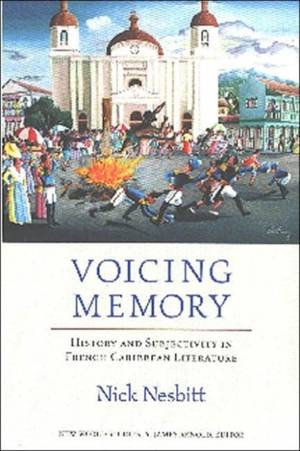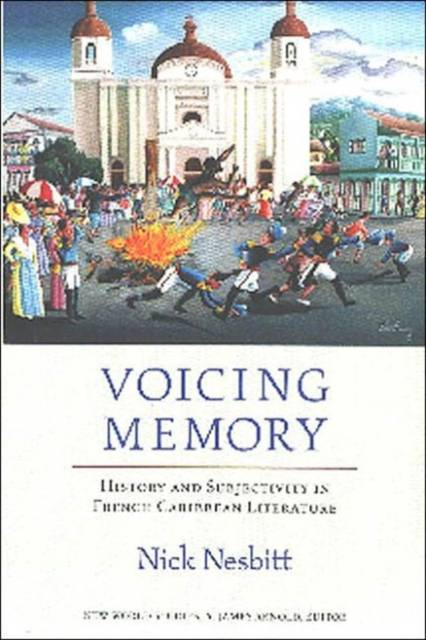
- Retrait gratuit dans votre magasin Club
- 7.000.000 titres dans notre catalogue
- Payer en toute sécurité
- Toujours un magasin près de chez vous
- Retrait gratuit dans votre magasin Club
- 7.000.0000 titres dans notre catalogue
- Payer en toute sécurité
- Toujours un magasin près de chez vous
Description
In Voicing Memory Nick Nesbitt argues that the aesthetic practices of twentieth-century French Caribbean writers reconstruct a historical awareness that had been lost amid the repressive violence of slavery, the plantation system, and colonial exploitation. Drawing on the work of Aimé Césaire, Edouard Glissant, Daniel Maximin, Maryse Condé, and Edwidge Danticat, he shows how these writers use the critical force of the aesthetic imagination to transform the parameters of Antillean experience.
The author takes the aesthetic practices of the black Atlantic--Antillean poetry, literature, and theater, but also Haitian vodou and visual arts, American jazz, and West African musical traditions--to constitute the models informing this Caribbean vernacular historiography. At the same time, Nesbitt shows how concepts from Césaire's "negritude" to Glissant's "relation" critically rework European theoretical influences to construct a black Atlantic historical self-consciousness. In so doing, Nesbitt points beyond the regionalism of Antillean exoticism to describe French Caribbean literature as a decisive intervention in the construction of a global modernity.
New World Studies
Spécifications
Parties prenantes
- Auteur(s) :
- Editeur:
Contenu
- Nombre de pages :
- 288
- Langue:
- Anglais
- Collection :
Caractéristiques
- EAN:
- 9780813921518
- Date de parution :
- 29-01-03
- Format:
- Livre broché
- Format numérique:
- Trade paperback (VS)
- Dimensions :
- 155 mm x 232 mm
- Poids :
- 421 g

Les avis
Nous publions uniquement les avis qui respectent les conditions requises. Consultez nos conditions pour les avis.






